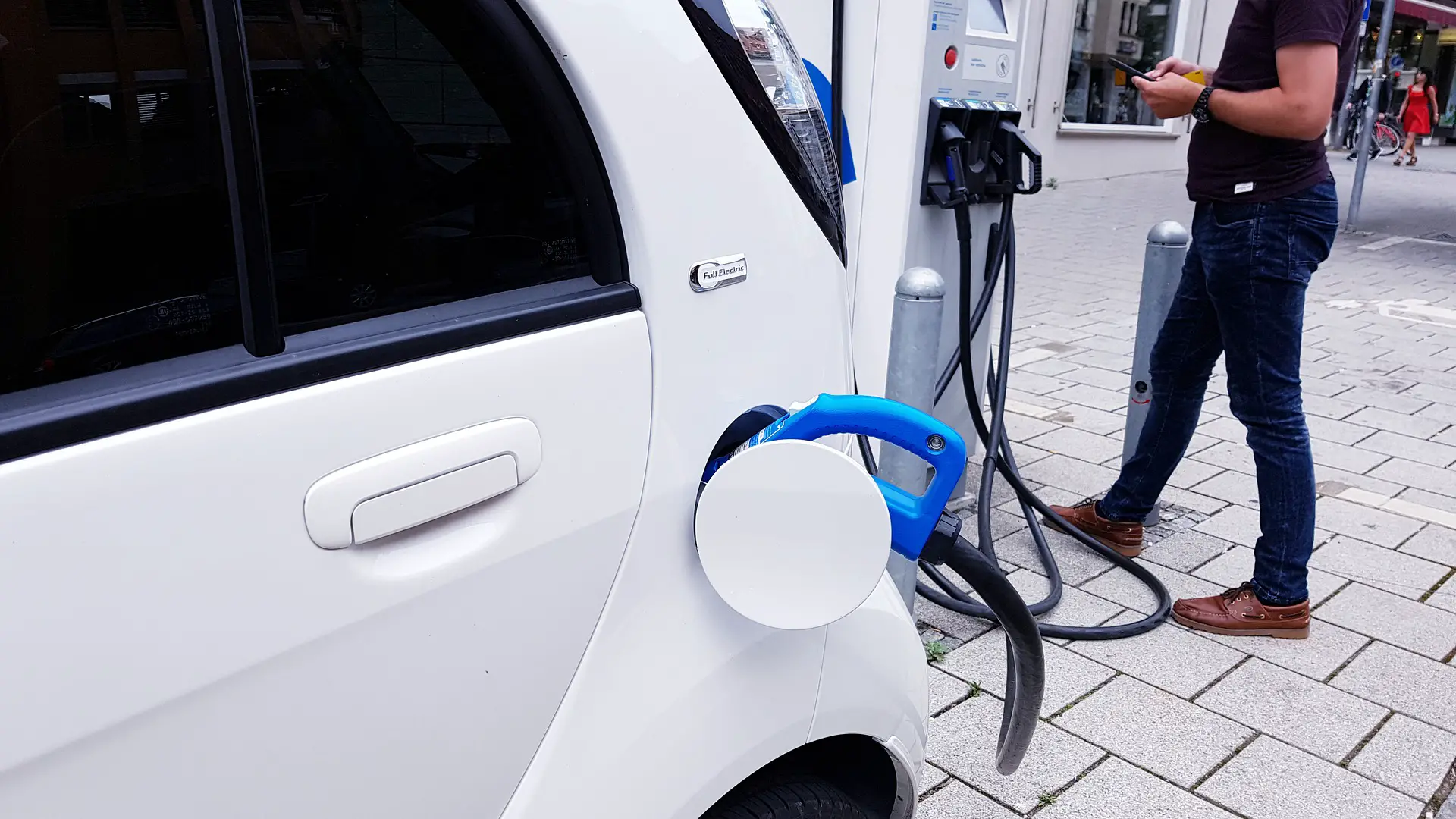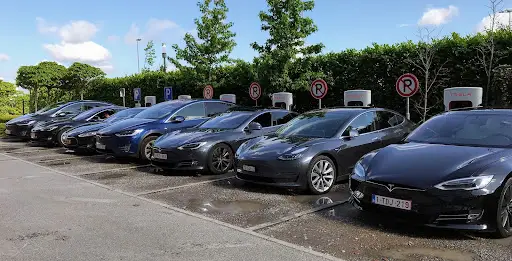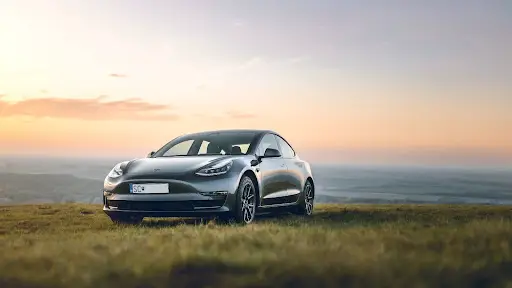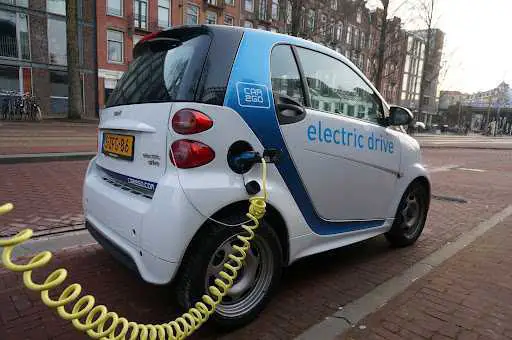Are Electric Cars More Prone To Rust?
Today, few cars on the road are plagued by rust. The vehicles that are rusted are generally more than a decade old. However, in recent years, there have been many reports that electric cars are more prone to rust than gas-powered counterparts.
Electric vehicles (EVs) are more prone to corrosion. In part, this is due to a shift towards partial galvanizing. The use of lightweight materials like aluminum also contributes to this. Specific metal pairings are also known to promote oxidation and corrosion.
If you’re worried that your electric vehicle is more susceptible to rust, we will tell you everything you need to know. We’ll explain why EVs rust more quickly, how to prevent rust formation, and whether electric cars can be rustproofed.
Table of Contents
- Do Electric Vehicles Rust More Than Other Vehicles?
- Why Are Electric Cars Prone To Corrosion?
- Preventing Rust On Electric Vehicles
- Can You Rust-Proof An Electric Car?
- Conclusion
Do Electric Vehicles Rust More Than Other Vehicles?
Over the decades, the automotive industry has made strides to reduce the corrosion of vehicles. However, there have been reports of increasing rust issues with two types of cars in recent years. This issue is primarily attributed to the widespread galvanization of car bodies.
In 2020, 6.7 million cars were inspected as part of a study. Out of all the vehicles inspected, 441,000 had rust issues. The vast majority of cars that displayed these issues were older than ten years. However, a small percentage of those vehicles were also newer electric cars.
Due to this, many consumers have wondered whether EVs are more prone to rust than other new cars on the road today. Unfortunately, this appears to be the case. Many car websites have described Tesla’s Model 3 EV as the perfect corrosion candidate.
This was primarily confirmed by Ralf Roessler, a rust expert who examined a Tesla vehicle with less than 200 miles on the odometer. The frame, which only received a light coat of paint, showed signs of rust. Roessler stated that this rust would turn brown within six months and would be rusted entirely in six years if untreated.
Rust was also observed on the suspension’s connecting rods. Many EV owners have also reported rusted bolts and disc brakes. However, you might be wondering why electric cars are more prone to corrosion – let us explain!
Why Are Electric Cars Prone To Corrosion?
Many recent studies and reports have confirmed that electric cars are more likely to rust than other cars on the road. However, many EV owners are unsure why their cars are prone to corrosion. Ultimately, this comes down to a shift in manufacturing processes.
When a rust expert evaluated a relatively new Tesla, he noted that only a thin layer of paint was provided. In many ways, this speaks to why EVs are rusting faster. One aspect of this is manufacturers moving towards partial galvanizing, which offers less protection against rust.
Due to the weight of electric car batteries, many manufacturers are using lighter materials, such as aluminum and magnesium. Unfortunately, these lightweight materials can react, resulting in the formation of galvanic rust.
Ill material pairings can further exacerbate the corrosion of electric cars. When these pairings are in hidden locations of an automobile, corrosion spots can start forming. However, due to the hidden area, this type of rust will go unnoticed longer by owners.
When you combine these reasons, it becomes apparent why electric cars are more prone to corrosion. At least there are various ways to prevent and combat rust regarding EVs! We’ll look at this in the following sections!
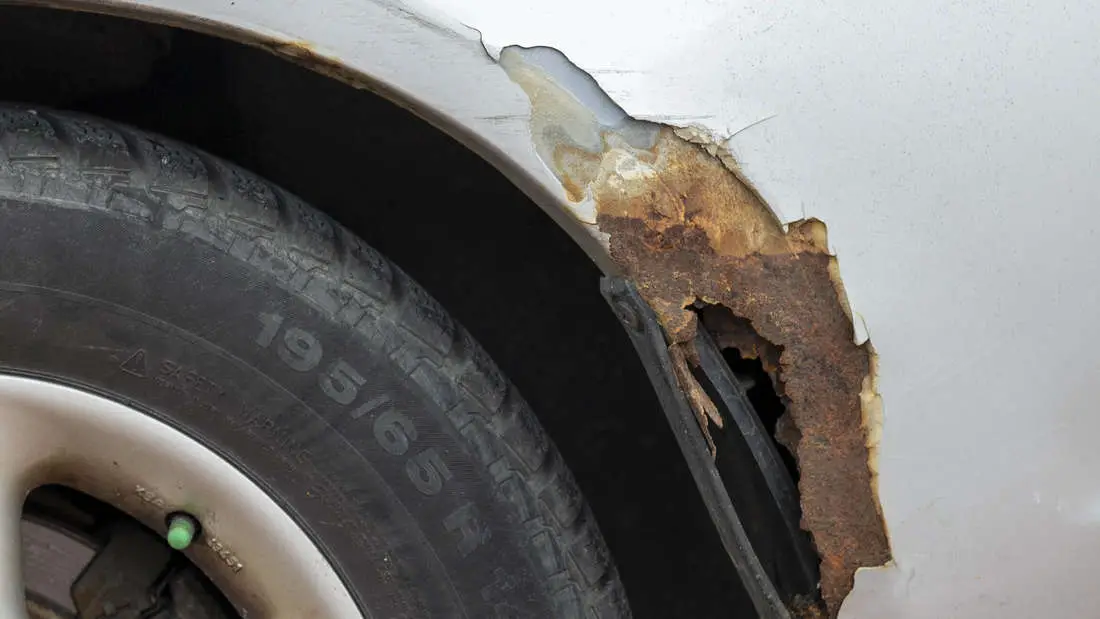
Preventing Rust On Electric Vehicles
As discussed earlier, many electric cars are more prone to rust than their gasoline-powered counterparts. However, being aware of this issue allows EV owners to implement ways to prevent their vehicles from rusting.
Many substances can damage your vehicle over time, including oil and road salt. These substances mainly affect the undercarriages of EVs. To prevent these unwanted materials from damaging your car, you need to wash your vehicle regularly.
Overall, regularly washing your electric vehicle is the best way to prevent rust and oxidation. You’ll need to ensure that a thorough wash is done. EV owners will need to pay special attention to aspects like their undercarriage and wheel wells. You might want to take your car to a car wash to ensure a good job is done!
In addition to washing your car, it’s essential to keep an eye on your paint job. Paint helps protect vehicles from rusting. When you notice paint chipping, rust will begin to form. When your car’s paint starts chipping like this, it’s essential to touch it up.
By following these simple EV maintenance tips, you can actively prevent rust from forming on our EV. All you need to do is regularly wash your electric vehicle and routinely inspect it for signs of rust!
Can You Rust-Proof An Electric Car?
With gas-powered vehicles, rustproofing is a simple way to prevent rust in the long term. Many EV owners have wondered whether they can rustproof their EVs in the same manner. The answer is yes and no.
Yes, electric cars can be rustproofed. In fact, you can even rustproof a Tesla Model 3. Electric or not, most cars are made from steel and require rustproofing, which is done by applying an anti-rust treatment. Unfortunately, it’s not as simple as applying it to your vehicle yourself.
With gas-powered vehicles, applying an anti-rust agent is easy and can be done at home. However, many electrical components can be damaged by applying one of these rustproofing products. That’s why it’s not recommended EV owners rustproof their vehicles themselves.
It is recommended that EV owners hire a rustproofing specialist. These professionals will be able to use the best treatment for your car – and they’ll know exactly how to apply it.
Conclusion
When compared to gas-powered cars, electric cars are more susceptible to rust. A shift towards partial galvanizing is partly to blame for this. Certain light metals and ill-pairings can also contribute to the formation of rust on electric vehicles. Luckily, this can be prevented through regular washes and rustproofing.
Amazon and the Amazon logo are trademarks of Amazon.com, Inc, or its affiliates.

